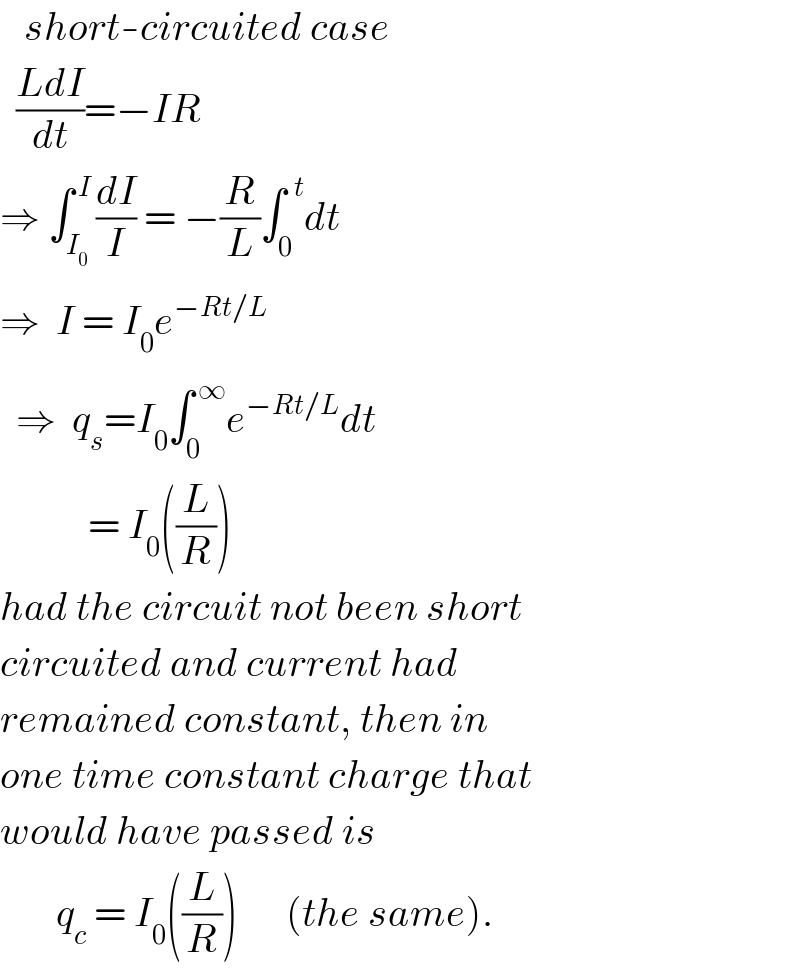
Question and Answers Forum
Question Number 55725 by Tinkutara last updated on 03/Mar/19

Answered by ajfour last updated on 03/Mar/19

Commented by Tinkutara last updated on 03/Mar/19
But before short circuiting the total charge would be 1/e that written in last line? Then the two will not be equal.
